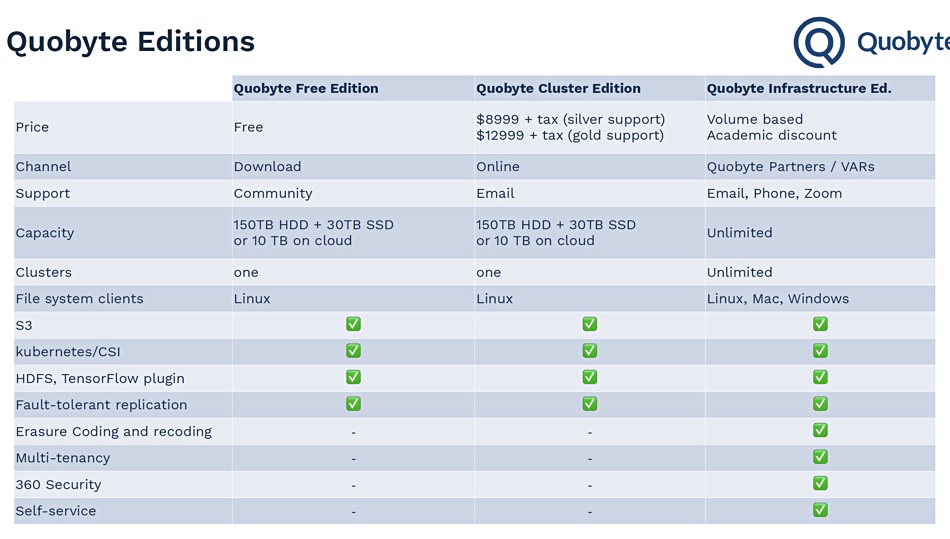Quobyte has dropped the veil on v3.0 of its Data Centre File System (DCFS) software, saying customers need scale-out, self-service, automated, secure, run anywhere, multi-tenant file services, and NFS is not up to the job.
Its hoping to step into that breach with its own DCFS software, which provides block, file and object access for high-performance computing (HPC) and machine learning apps. It runs on-premises, on bare metal, in VMs and containers, and in the Google cloud. V3.0 adds a whole lot of policy-driven, multi-tenant, security and self-service goodness.

CEO and co-founder Bjorn Kolbeck told B&F it’s time “to ditch the NFS protocol.”
NFS has no load-balancing, no failover, and no access to multiple metadata servers. All-in-all: “You can’t do true scale-out with a 40-year-old protocol.”
V3.0 adds a Policy Engine that:
- Controls all aspects of a Quobyte cluster through flexible policies, from data redundancy, automatic recoding to immutability
- The policies can be reconfigured at runtime without interruption of service
- Automation ensures the optimal selection of redundancy and placement, including the new automatic policy that switches between replication and erasure coding as well as flash and HDD inside a file
- Policy-based data tiering between clusters and recoding;
It supports multi-tenancy with self-service features:
- Storage-as-a-Service / Cloud-like experience
- Self-service for users from the web console
- Automatic resource provisioning from Kubernetes
DCFS v3.0 has a raft of security improvements:
- End-to-end AES encryption (In transit / at rest / untrusted storage system)
- Selective TLS support, e.g. between data centres
- Access Keys for the file system
- X.509 certificates
- Event stream (metadata, file access)
It also adds a multi-cluster data mover with bi-directional sync, and more native drivers, including HDFS and MPI-IO. The latter provides the benefits of lower latency and less memory bandwidth by bypassing the kernel.
Randy Kerns, senior strategist & analyst at the Evaluator Group, supplied supportive words: “The industry continues to move towards infrastructures that require high-performance storage to supplement compute-intensive applications. Quobyte’s powerful policy engine, holistic approach to data protection and storage-as-as-service usability makes it a viable candidate for deployment in organisations that are increasingly moving towards transactional processes and AI/ML workloads.”

Quobyte 3.0 is available now through the company’s VAR channel. Pricing is based on volume with unlimited capacity and unlimited clusters available. Discounts are available for academic institutions.
You can obtain Quobyte software via a freemium deal – there is a free edition with 150TB of capacity. Otherwise customers buy Cluster or Infrastructure editions.








